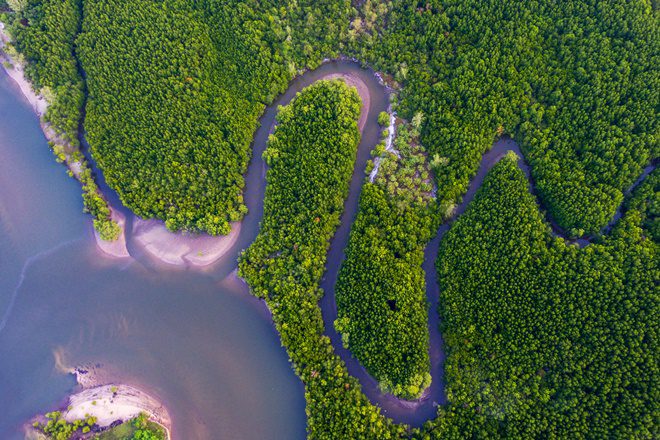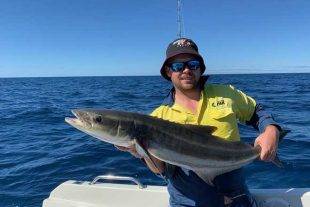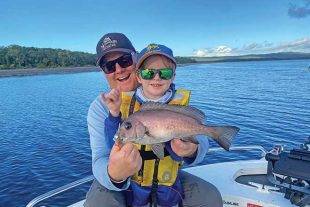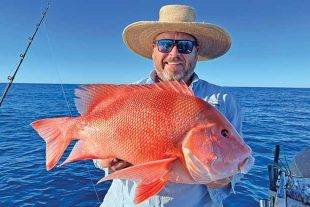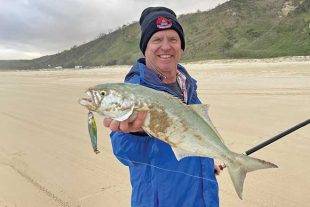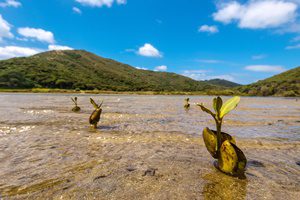 A GROUNDBREAKING project led by Deakin University will soon begin mapping Queensland’s blue carbon resources to provide scientists with a new weapon in the fight to help save the Great Barrier Reef.
A GROUNDBREAKING project led by Deakin University will soon begin mapping Queensland’s blue carbon resources to provide scientists with a new weapon in the fight to help save the Great Barrier Reef.
Deakin Associate Professor in Marine Science Peter Macreadie, Director of the University’s Blue Carbon Lab, said the project, funded by the Queensland Government’s Land Restoration Fund, will reveal for the first time the full scale of the state’s blue carbon farming opportunities. “The project will identify how many tonnes of CO2 could be offset each year by coastal blue carbon systems and where along the Great Barrier Reef catchment area those opportunities exist,” Assoc Prof Macreadie said. “A key output of the project will be the ‘Blue Carbon Restoration Heat Map 1.0’, a user-friendly map of Queensland’s land area that shows where carbon farming opportunities are located.”
Blue carbon is the carbon stored in coastal and marine ecosystems. When protected or restored, blue carbon ecosystems can offset carbon emissions and fight climate change by capturing and storing carbon. When degraded or destroyed, these ecosystems emit the carbon stored for centuries back into the atmosphere and oceans, becoming sources of greenhouse gasses.
“As well as helping mitigate climate change, coastal wetlands such as mangrove forests and tidal marshes are champions when it comes to catching sediment run-off and improving water quality for the Reef itself,” Assoc Prof Macreadie said. Deakin’s Blue Carbon Lab is an award-winning, multi-disciplinary research team focused on understanding and responding to impacts of global change on freshwater, coastal and ocean ecosystems.
Assoc Prof Macreadie said the new project would work to build understanding of Queensland’s blue carbon future, feeding into a much larger, multi-year series of programs that will help expand carbon farming in Queensland through the development of a blue carbon market. “This project will help put Queensland at the forefront of international efforts to incorporate coastal carbon within CO2 mitigation strategies, helping to mitigate climate change, while improving water quality, enhancing natural capital and contributing to jobs and economic growth,” he said.
“Importantly, it will provide new societal and financial impetus for restoration and protection of Queensland’s coasts, seeding new environmental markets and ensuring a legacy of optimal management of coastal ecosystems. The work is timely given Queensland’s blue carbon ecosystems have declined dramatically as a result of coastal development, and face added pressures with future climate change, including sea levels rising. Research outputs will help Queensland better protect and manage threatened coastal systems by providing predictive models of how much blue carbon could exist in the future under different management scenarios.”
The project is led by Assoc Prof Macreadie as director of the Blue Carbon Lab in close partnership with academics, project developers and industry.
The multi-sector collaboration includes the University of Queensland, James Cook University, CSIRO, the Federal Department of the Environment and Energy (International Partnership for Blue Carbon), GreenCollar Group, North Queensland Dry Tropics, Qantas, HSBC and the Great Barrier Reef Foundation. l l l l l l l l l l l l l l l l l l l l l l l l l l l l l l l l l l l l l l l l l l l l l l l l l l l l l l l l l l l l l l l l l l l l l l l l l l l l l l l
 Bush 'n Beach Fishing Magazine Location reports & tips for fishing, boating, camping, kayaking, 4WDing in Queensland and Northern NSW
Bush 'n Beach Fishing Magazine Location reports & tips for fishing, boating, camping, kayaking, 4WDing in Queensland and Northern NSW
